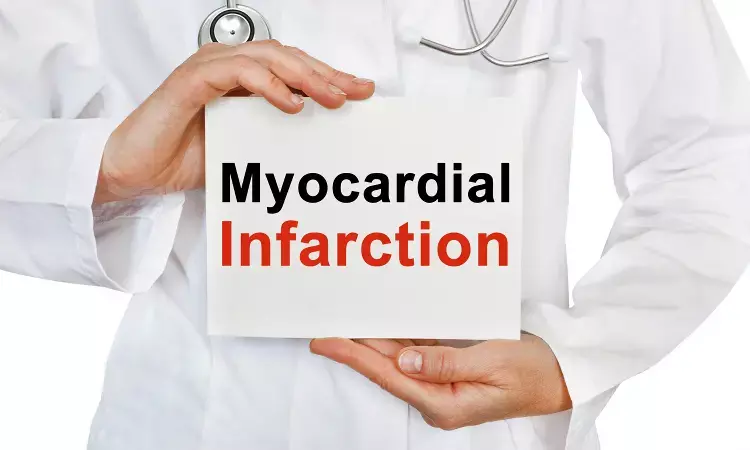- Home
- Medical news & Guidelines
- Anesthesiology
- Cardiology and CTVS
- Critical Care
- Dentistry
- Dermatology
- Diabetes and Endocrinology
- ENT
- Gastroenterology
- Medicine
- Nephrology
- Neurology
- Obstretics-Gynaecology
- Oncology
- Ophthalmology
- Orthopaedics
- Pediatrics-Neonatology
- Psychiatry
- Pulmonology
- Radiology
- Surgery
- Urology
- Laboratory Medicine
- Diet
- Nursing
- Paramedical
- Physiotherapy
- Health news
- Fact Check
- Bone Health Fact Check
- Brain Health Fact Check
- Cancer Related Fact Check
- Child Care Fact Check
- Dental and oral health fact check
- Diabetes and metabolic health fact check
- Diet and Nutrition Fact Check
- Eye and ENT Care Fact Check
- Fitness fact check
- Gut health fact check
- Heart health fact check
- Kidney health fact check
- Medical education fact check
- Men's health fact check
- Respiratory fact check
- Skin and hair care fact check
- Vaccine and Immunization fact check
- Women's health fact check
- AYUSH
- State News
- Andaman and Nicobar Islands
- Andhra Pradesh
- Arunachal Pradesh
- Assam
- Bihar
- Chandigarh
- Chattisgarh
- Dadra and Nagar Haveli
- Daman and Diu
- Delhi
- Goa
- Gujarat
- Haryana
- Himachal Pradesh
- Jammu & Kashmir
- Jharkhand
- Karnataka
- Kerala
- Ladakh
- Lakshadweep
- Madhya Pradesh
- Maharashtra
- Manipur
- Meghalaya
- Mizoram
- Nagaland
- Odisha
- Puducherry
- Punjab
- Rajasthan
- Sikkim
- Tamil Nadu
- Telangana
- Tripura
- Uttar Pradesh
- Uttrakhand
- West Bengal
- Medical Education
- Industry
Early addition of PCSK9 inhibitors to statins significantly reduce LDL-C in STEMI patients undergoing PCI

Canada: Early supplementation of PCSK9 inhibitor along with high-intensity statin further decreases LDL cholesterol (by 22%) in patients undergoing PCI for ST-segment elevation MI (STEMI), says a study published in EuroIntervention journal.
Regardless of LDL-cholesterol levels, early high-intensity statin treatment is the accepted worldwide standard of care for patients with STEMI. Shamir R. Mehta and colleagues carried out this study in order to ascertain the impact of a similar early initiation strategy employing a PCSK9 inhibitor combined to a high-intensity statin on LDL cholesterol in acute STEMI.
In a randomized, double-blind experiment, 68 STEMI patients having primary PCI were randomly allocated to receive alirocumab 150 mg subcutaneously early therapy or a matched sham-control. Regardless of the baseline LDL level, the first injection was given prior to the main PCI, and subsequent ones were given at 2 and 4 weeks. A linear mixed model was used to examine the primary outcome, which was the percent reduction in direct LDL-cholesterol up to 6 weeks.
The key findings of this study were:
1. The percentages of high-intensity statin usage in the alirocumab/sham-control groups were 97% and 100%, respectively.
2. LDL cholesterol was reduced by 72.9% with alirocumab (2.97 mmol/L to 0.75 mmol/L) against 48.1% with a sham-control (2.87 mmol/L to 1.30 mmol/L) at a median of 45 days, for a mean between-group difference of -22.3%.
3. Alirocumab patients were more likely to reach the ESC/EAS dyslipidemia guideline goal LDL1.4 mmol/L (92.1% vs. 56.7%).
4. With similar between-group mean values, LDL decreased during the first 24 hours in both the alirocumab and sham-control groups (-0.01 mmol/L/hour).
In conclusion, alirocumab lowered LDL-cholesterol by 22% when given early in patients undergoing primary PCI for STEMI while they were already on a high-intensity statin. If this streamlined method combined with long-term medication improves cardiovascular outcomes in individuals with acute STEMI, a significant trial is required to establish it.
Reference:
Mehta, S. R., Pare, G., Lonn, E. M., Jolly, S. S., Natarajan, M. K., Pinilla-Echeverri, N., Schwalm, J.-D., Sheth, T., Sibbald, M., Tsang, M., Valettas, N., Velianou, J. L., McCready, T., & McQueen, M. J. (n.d.). Effects of Routine Early Treatment with PCSK-9 inhibitor in Patients Undergoing Primary Percutaneous Coronary Intervention for ST-Segment Elevation Myocardial Infarction: A randomized, double-blind, sham-controlled trial. Pcronline.com.https://doi.org/10.4244/EIJ-D-22-00735
Neuroscience Masters graduate
Jacinthlyn Sylvia, a Neuroscience Master's graduate from Chennai has worked extensively in deciphering the neurobiology of cognition and motor control in aging. She also has spread-out exposure to Neurosurgery from her Bachelor’s. She is currently involved in active Neuro-Oncology research. She is an upcoming neuroscientist with a fiery passion for writing. Her news cover at Medical Dialogues feature recent discoveries and updates from the healthcare and biomedical research fields. She can be reached at editorial@medicaldialogues.in
Dr Kamal Kant Kohli-MBBS, DTCD- a chest specialist with more than 30 years of practice and a flair for writing clinical articles, Dr Kamal Kant Kohli joined Medical Dialogues as a Chief Editor of Medical News. Besides writing articles, as an editor, he proofreads and verifies all the medical content published on Medical Dialogues including those coming from journals, studies,medical conferences,guidelines etc. Email: drkohli@medicaldialogues.in. Contact no. 011-43720751


